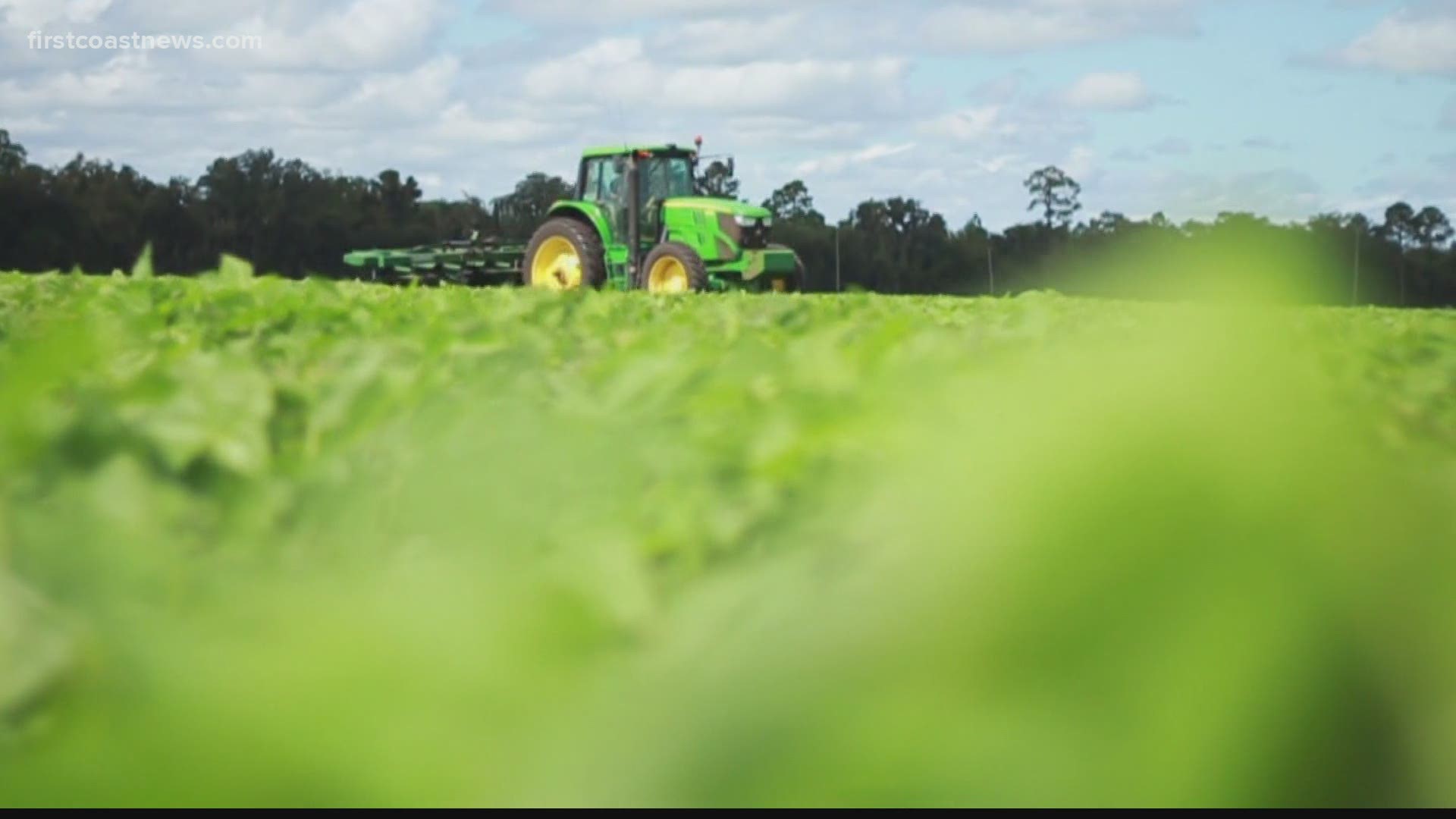ST. JOHNS COUNTY, Fla. — It's been a year since First Coast News started following a local farmer, sharing with you his successes and struggles.
When we started this story, we had no idea the troubles farmers would face because of a pandemic. We’re proud to tell you this series has been nominated for a regional Emmy.
This is the final installment in our story, showing how the weather is an age-old challenge for farmers and how Covid is something new.
On a beautiful autumn day at Riverdale Farm, the fall crop of green beans is reaching for the sun.
However, the ground is not looking its best.
"That water is sitting right there," Bryan Jones tapped his foot on a muddy mushy soil on his farm.
The ground is wet. And green beans "do not like wet feet," Jones explained.
It’s been soggy autumn for Jones in St. Johns County.
"We've all been seeing the effects of all these many nor'easters and summer storms," Jones said.
So tractors are running on his farm which sits close to the St. Johns River.
"What’ we’re trying to do is dig that down so the water can then drain from the field and leave our plants alone," he chuckled.
This third-generation farmer has already lost a good bit of this green bean crop.
"We probably lost at least 20 to 30% of our yield. It hurts dramatically," he said.
Jones' family grows green beans in the fall and spring. However, with a thousand acres of potatoes, spuds are the main source of income for this family. And this year, the Covid storm hit that crop.
"There was a tremendous loss here at our farm," Jones said.
The potatoes were great looking. It was a beautiful crop this year.
"We were sending ours to a facility that was making them into chips," Jones noted.
But that major potato chip company’s facility had to shut down three times to do extensive cleaning because of concerns regarding Covid contamination.
That leaf potato in the dirt and Jones had nowhere to send them.
"So if they're shut down, we can't just jump into another facility and take them over there because then we are hurting other growers," Jones explained.
Meanwhile, the potatoes sat in the field, with no potato chip facility to take them, in time. Eventually, Jones made that heartbreaking decision to plow under many of his potato fields.
"It is the most sickening thing to do," he said.
There’s no video of pictures of that.
"Of destroying our crop? No. That’s not something we want to relive," he said. That’s a really hard thing to swallow. Sometimes there’s a lot of tears over it," Jones said.
He estimates he lost at least $350,000.
"But it's you know, it's nothing that farmers aren't used to. The pandemic is new. Covid is new," he nodded, "but challenges for farmers is not new. And you know, we don't have to like it, we just got to deal with it. The good news is that we're still here, we're still farming."
Still farming. Trying to dry out green beans just in time for Thanksgiving Day tables.
Through tears, rain, and that faithful farming smile, this farmer keeps going.

